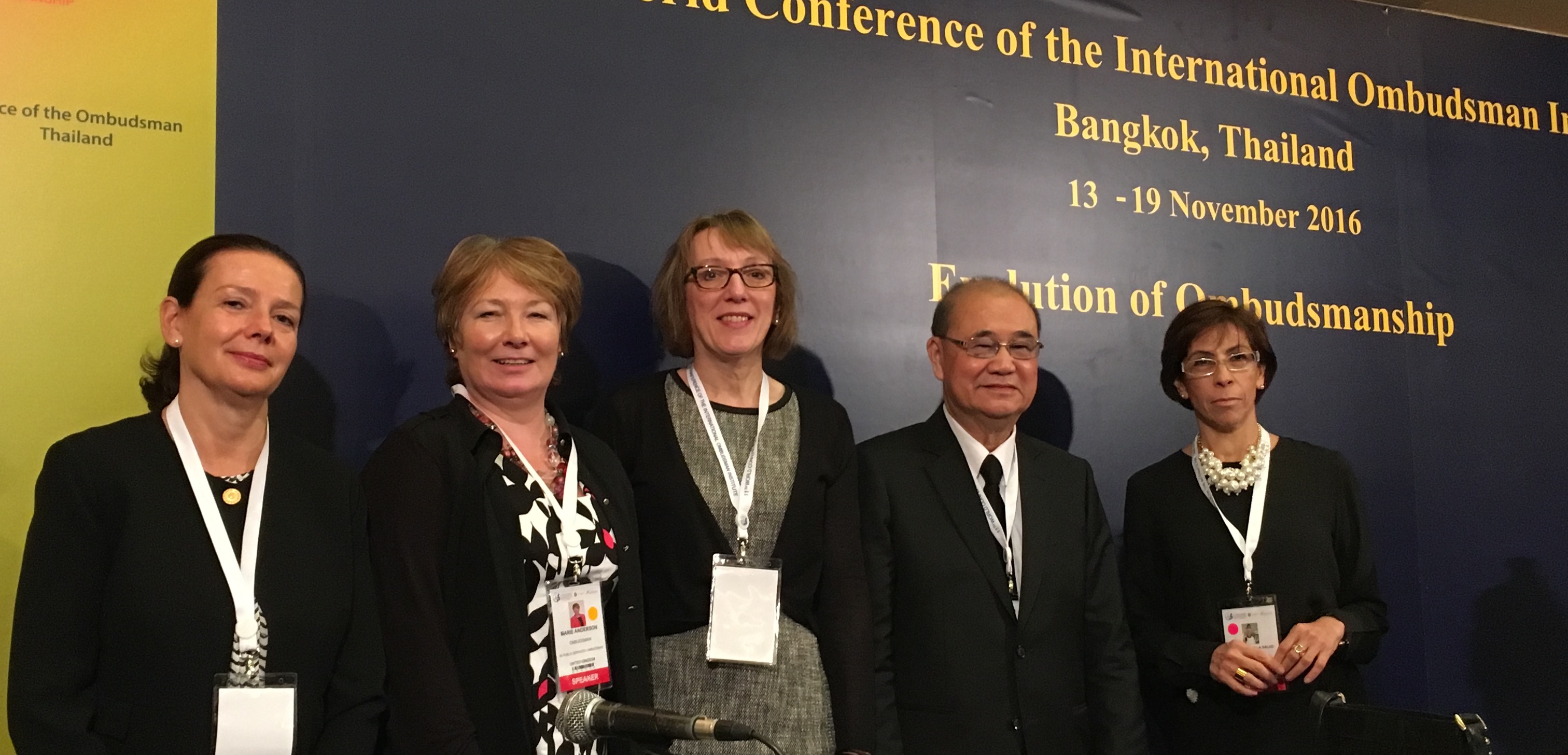
UAlberta Law Professor Linda C. Reif in attendance at the 11th Conference of the International Ombudsman Institute in Bangkok, Thailand from November 13 to 19, 2016
In her November 2017 article in Human Rights Law Review (Vol. 17: Issue 4, 2017), University of Alberta Law Professor Linda C. Reif tackles the question of how to better empower national human rights institutions in the face of private sector activity that compromises human rights.
Entitled "The UN Guiding Principles on Business and Human Rights and Networked Governance: Improving the Role of Human Rights Ombudsman Institutions as National Remedies", the paper argues that existing human rights ombudsman institutions in countries worldwide should be given further legal clout through expanded investigative power and mandates to actively promote human rights.
"All human rights ombudsman institutions have the right to investigate complaints, but in some cases that's the limit of their power," Reif explained.
"Under the UN Paris Principles, national human rights institutions (NHRIs) are not required to investigate specific human rights violation claims but they are required to engage in a variety of human rights promotion activities such as education, public awareness-raising and law reform advice to government. While all human rights ombudsman institutions have the power to investigate public complaints against the public sector not all have broad human rights promotion mandates."
"I believe expanded jurisdiction for human rights ombudsman institutions to cover the private sector, including private corporate behaviour, as well as increased human rights promotion power, will go a long way in addressing rights violations by businesses worldwide."
Reif notes that the late-eighties and early-nineties witnessed a flourishing of national human rights institutions, particularly in Latin America and Eastern Europe amid the collapse of the Communist bloc and the eclipse of military regimes in many Central and South American countries. Most of these take the form of human rights ombudsman organizations.
Some but not all of these also have official mandates to promote human rights, although, as Reif asserts, this capacity remains severely underutilized.
"A lot of these human rights ombudsman institutions don't even realize they can apply the UN Guiding Principles," she noted.
Greater empowerment of national human rights institutions is particularly important in developing countries with weaker public institutions because aggrieved parties typically do not have the wherewithal to fight back through the civil justice system.
"In many countries the law courts are either beset with corruption or bogged down by inefficiency, making them non-options for people seeking justice against business conduct which impacts their human rights negatively. Furthermore, even without these problems many people typically don't have the financial wherewithal to go through the court system. This makes it all the more imperative that NHRIs have the power to investigate human rights abuse claims and actively educate the public on these issues," she said.
"There are a tremendous number of national human rights institutions around the world, fighting for people's rights. Oftentimes these institutions can do things the courts can't do, like actively promote human rights. This is part of a larger campaign of educating people, of developing human rights cultures worldwide. This doesn't happen overnight, but these institutions are the ones doing it. But they need to be empowered by international law in order to better do their job."
Professor Reif's paper is available in print in (2017) 17:4 Human Rights Law Review 603-632 and is viewable online here.